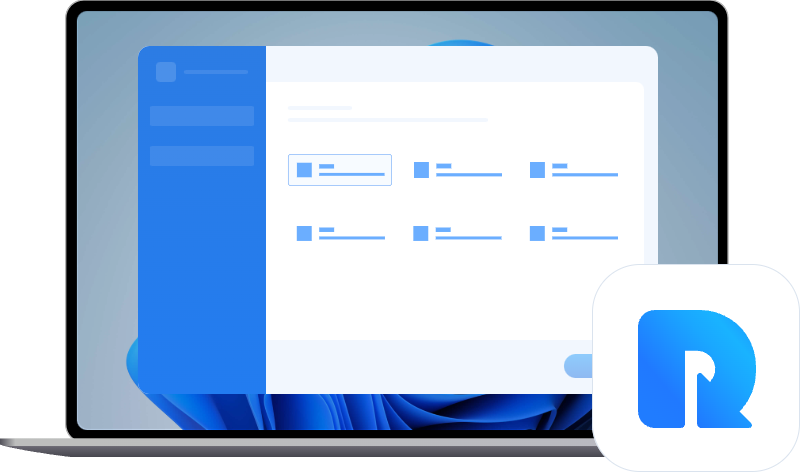A Comprehensive Guide to Troubleshoot and Fix Computer Randomly Restarts Issues
Delve into the complexities of resolving computer randomly restarts with this detailed guide. From understanding the root causes to implementing intricate solutions, including the MyRecover tool, this article offers an in-depth exploration to ensure a stable computing experience.
In the dynamic digital landscape, encountering issues with your computer can be more than just an inconvenience; it can disrupt your workflow and cause frustration. One prevalent issue users face is the computer randomly restarting without warning. This article aims to provide a comprehensive and detailed guide on troubleshooting and resolving this perplexing problem.
Understanding the Challenge
Experiencing a computer randomly restarting is not only disruptive but also puzzling. The sudden interruption of tasks and potential loss of unsaved work can lead to significant inconvenience. To effectively address this issue, it's crucial to delve into the root causes and identify potential solutions.
Why Does Your Computer Restart Randomly?
The reasons behind random restarts can be diverse, ranging from hardware malfunctions to software conflicts. Overheating, faulty RAM, and power supply issues are among the common culprits. Understanding these factors is the first step towards finding a solution.
Methods to Fix Computer Randomly Restarts:
Method 1: Check for Overheating Issues
Computers are susceptible to overheating, especially if the cooling system is compromised. Here's a detailed step-by-step approach to addressing overheating:
Ensure Proper Ventilation:
Check if the computer is in a well-ventilated area.
Remove any obstructions blocking airflow to the cooling components.
Clean Internal Components:
Dust accumulation can impede proper cooling. Carefully clean the internal components, including fans and heat sinks.
Monitor Temperature Levels:
Utilize monitoring tools to keep track of the temperature levels.
If temperatures are consistently high, consider investing in additional cooling solutions such as extra fans or cooling pads.
Method 2: Test and Replace Faulty RAM
Random restarts can be attributed to faulty RAM modules. Follow these detailed steps to test and replace faulty RAM:
Use Windows Memory Diagnostic:
Open the Start menu and type "Windows Memory Diagnostic."
Select the tool and choose to restart the computer and check for memory problems.
Third-Party RAM Testing Tools:
Consider using third-party tools like MemTest86 for a more thorough RAM test.
Identify Faulty RAM:
If issues are detected, identify the faulty RAM module by testing each one individually.
Replace Faulty RAM:
Purchase compatible RAM modules and replace the faulty ones following the manufacturer's guidelines.
Method 3: Verify Power Supply Stability
Inconsistent power supply can lead to sudden restarts. Follow these detailed steps to ensure power supply stability:
Check for Loose Connections:
Examine all power connections, ensuring they are securely plugged in.
Use a Reliable Surge Protector:
Invest in a high-quality surge protector to safeguard against power fluctuations.
Consider Power Supply Replacement:
If the issue persists, consider replacing the power supply unit with a reliable one.
Method 4: Update Device Drivers
Outdated or incompatible drivers can contribute to system instability. Here's a step-by-step guide to updating device drivers:
Access Device Manager:
Right-click on the Start menu and select "Device Manager."
Locate Device Drivers:
Identify the drivers with a yellow triangle, indicating an issue.
Update Drivers:
Right-click on the driver, select "Update driver," and choose the option to search automatically for updated driver software.
Repeat for Each Driver:
Repeat the process for all drivers with issues.
Method 5: Scan for Malware and Viruses
Malicious software can cause various issues, including random restarts. Follow these detailed steps to perform a thorough malware and virus scan:
Use Reputable Antivirus Software:
Install and update a reputable antivirus program.
Full System Scan:
Initiate a full system scan, ensuring all drives are included.
Quarantine or Remove Threats:
If threats are detected, follow the antivirus program's instructions to quarantine or remove them.
Method 6: Explore MyRecover for Comprehensive Recovery
MyRecover stands out as a powerful recovery tool designed to address various computer issues, including random restarts. Here's a detailed exploration of MyRecover:
MyRecover Features:
Complete System Restore:
MyRecover ensures a comprehensive restoration of your system, addressing not only random restarts but also other potential issues.
User-Friendly Interface:
The intuitive interface makes it easy for users, regardless of technical expertise, to navigate and utilize MyRecover effectively.
MyRecover Recovery Steps:
Download and Install:
Visit the official MyRecover website, download the tool, and follow the installation instructions.
Launch the Program:
Open MyRecover and select the appropriate recovery option based on your specific issue.
Follow On-Screen Instructions:
The tool will guide you through the recovery process with step-by-step instructions.
Complete Restoration:
Once the process is complete, your computer should be free from random restart issues.
Conclusion
In conclusion, resolving the perplexing problem of computer randomly restarting requires a systematic and detailed approach. By understanding potential causes and implementing intricate solutions, users can ensure a stable and uninterrupted computing experience. MyRecover emerges as a valuable tool in this journey, offering a user-friendly and comprehensive solution for system restoration.
FAQs
Q: Can overheating cause my computer to restart randomly?
A: Yes, overheating is a common cause of random restarts. Ensure proper ventilation and monitor temperature levels.
Q: How often should I update my device drivers?
A: Regularly updating device drivers is recommended to ensure compatibility and prevent potential conflicts. Aim for updates at least once a month.
Q: What makes MyRecover a reliable recovery tool?
A: MyRecover stands out with its user-friendly interface and the ability to address various computer issues, making it a reliable choice for comprehensive recovery.
Q: Is it necessary to replace faulty RAM for resolving random restarts?
A: Yes, faulty RAM can contribute to random restarts. Testing and replacing faulty RAM modules can often resolve the issue.
Q: Can malware and viruses cause random restarts?
A: Yes, malicious software can lead to system instability, including random restarts. Regularly scan your system for malware and viruses.


